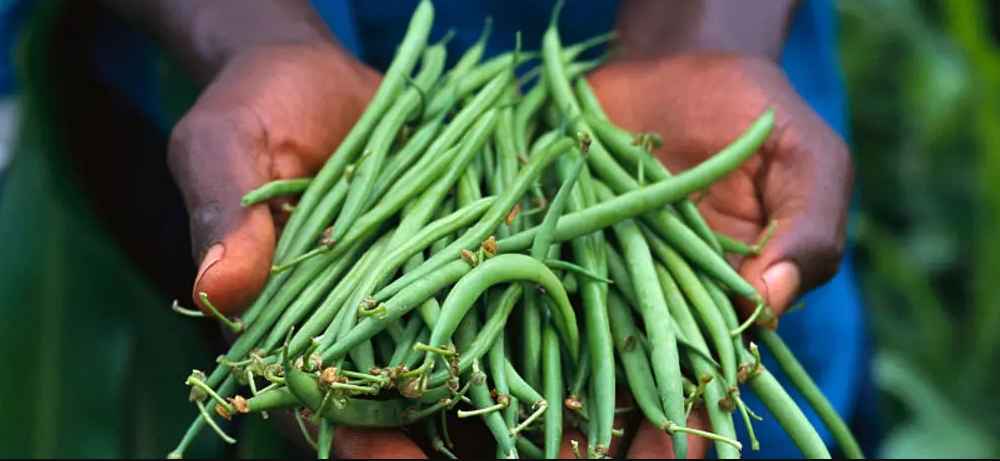WITNESS RADIO MILESTONES
Food Sovereignty: A Manifesto for the Future of Our Planet
Published
3 years agoon
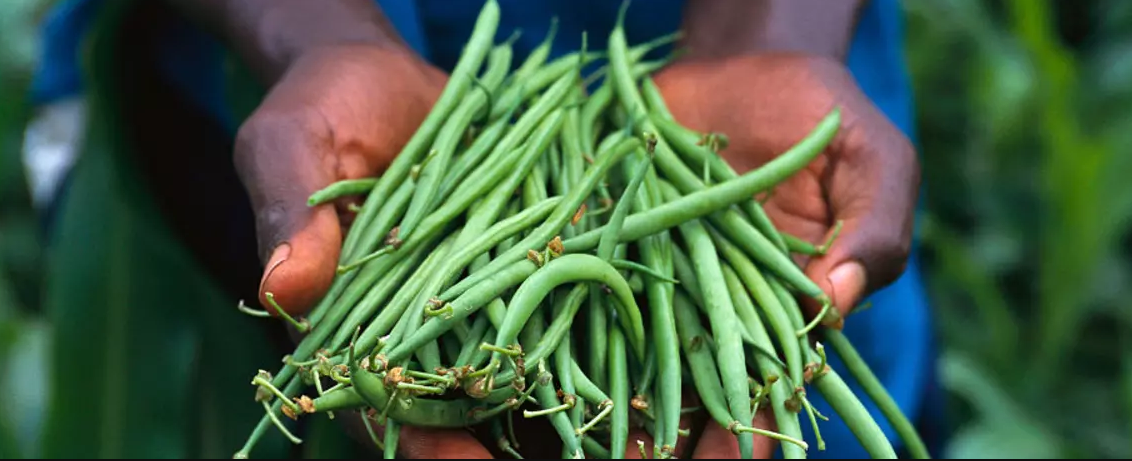
“It is for the future of humanity that we defend our food sovereignty,” says La Via Campesina.
An official statement marking 25 years of collective struggles for food sovereignty.
Food Sovereignty is a philosophy of life.
It offers a vision for our collective future, and defines the principles around which we organize our daily living and co-exist with Mother Earth. It is a celebration of life and all the diversity around us. It embraces every element of our cosmos; the sky above our heads, the land beneath our feet, the air we breathe, the forests, the mountains, valleys, farms, oceans, rivers and ponds. It recognizes and protects the inter-dependency between eight million species that share this home with us.
We inherited this collective wisdom from our ancestors, who ploughed the land and waded the waters for 10,000 years, a period in which we evolved into an agrarian society. Food Sovereignty promotes justice, equality, dignity, fraternity and solidarity. Food Sovereignty is also the science of life – built through lived realities spread across countless generations, each teaching their progeny something new, inventing new methods and techniques which sat harmoniously with nature.
As holders of this rich heritage, it is our collective responsibility to defend it and preserve it.
Food Sovereignty promotes justice, equality, dignity, fraternity and solidarity. Food Sovereignty is also the science of life.
Recognizing this as our duty – especially in the late ’90s when conflicts, acute hunger, global warming and extreme poverty were too visible to ignore – La Via Campesina(LVC) brought the paradigm of Food Sovereignty into international policy-making spaces. LVC reminded the world that this philosophy of life must guide the principles of our shared living.
The ’80s and the ’90s were an era of unbridled capitalist expansion – at a pace never seen before in human history. Cities were expanding, growing on the backs of cheap, unpaid and underpaid labour. The countryside was being pushed into oblivion. Rural communities and rural ways of living were swept under the carpet by a new ideology that wanted to turn everybody into a mere consumer of things and an object of exploitation for profit. Popular culture and consciousness were under the spell of glittery advertisements goading people to “buy more”. In all this, though, the ones who produced – the working class in the rural areas, coasts and cities, which included the peasants and other small-scale food producers – remained invisible, while the ones who could afford to consume with wander took centre stage. Pushed to the edges, peasant1 workers and indigenous communities worldwide recognized the urgent necessity for an organized and internationalist response to this globalizing, free-market ideology propagated by the defenders of the capitalist world order. Food Sovereignty became one of the expressions of this collective response.

At the 1996 World Food Summit, in a debate about how we organize our global food systems, La Via Campesina coined the term food sovereignty; to insist upon the centrality of the small-scale food producers, the accumulated wisdom of generations, the autonomy and diversity of rural and urban communities and solidarity between peoples, as essential components for crafting policies around food and agriculture.
In the ensuing decade, social movements and civil society actors worked together to define it further “as the right of peoples to healthy and culturally appropriate food produced through ecologically sound and sustainable methods, and their right to define their own food and agriculture systems. It puts the aspirations and needs of those who produce, distribute and consume food at the heart of food systems and policies rather than the demands of markets and corporations.”
The introduction of Food Sovereignty as a collective right changed how the world understood poverty and hunger.
Until then, especially in the early years of the 21st century, a narrow idea of “Food Security” dominated governance and policy-making circles. Noble in its intent, food security treated those affected by hunger as objects of compassion, risked reducing them to passive consumers of food produced elsewhere. While it recognized food as a fundamental human right, it did not defend the objective conditions for producing food. Who produces? For Whom? How? Where? And Why? All these questions were absent, and the focus was decidedly on merely “feeding the people”. An overt emphasis on people’s food security ignored the hazardous consequences of industrial food production and factory farming, built on the sweat and labour of migrant workers.
Food Sovereignty, on the other hand, presents a radical overhaul. It recognizes people and local communities as the principal actors in the fight against poverty and hunger. It calls for strong local communities and defends their right to produce and consume before trading the surplus. It demands autonomy and objective conditions to use local resources, calls for agrarian reform and collective ownership of territories. It defends the rights of peasant communities to use, save, exchange seeds. It stands for the rights of people to eat healthy, nutritious food. It encourages agroecological production cycles, respecting climatic and cultural diversities in every community. Social peace, social justice, gender justice and solidarity economies are essential pre-conditions for realizing food sovereignty. It calls for an international trade order based on cooperation and compassion as against competition and coercion. It calls for a society that rejects discrimination in all forms – caste, class, racial and gender – and urges people to fight patriarchy and parochialism. A tree is only strong as its roots. Food Sovereignty, defined by social movements in the ‘90s and subsequently at the Nyeleni Forum in Mali in 2007, intends to do precisely that.
This year we celebrate 25 years of this collective construction.
The world is nowhere near perfect. Capitalism and free-market ideology continue to dominate policy circles even in the face of unprecedented inequality, rising hunger and extreme poverty. Worse, new attempts are also being made to envision a digital future – of farming without farmers, fishing without fishers- all under the garb of digitalisation of agriculture and to create new markets for synthetic food.
All these challenges notwithstanding, the Food Sovereignty Movement, which is now much more extensive than La Via Campesina and comprises several actors, has made significant advances.
Thanks to our joint struggles, global governance institutions such as the FAO 2 have come to recognize the centrality of peoples’ food sovereignty in international policy-making. The UN Declaration on Rights Peasants and Other People Working in Rural Areas further re-emphasizes this in Article 15.4, when it states, “ Peasants and other people working in rural areas have the right to determine their own food and agriculture systems, recognized by many States and regions as the right to food sovereignty. This includes the right to participate in decision-making processes on food and agriculture policy and the right to healthy and adequate food produced through ecologically sound and sustainable methods that respect their cultures.”
Some nations have also given constitutional recognition to Food Sovereignty. The disruptions caused by the COVID-19 pandemic in the industrial food chains have further reminded national governments of the importance of creating robust local economies.
Peasant Agroecology, which is fundamental to ensuring food sovereignty in our territories, is now recognized at the FAO as central to our fight against global warming. Current and previous Special Rapporteurs of the United Nations have endorsed food sovereignty as a simple but powerful idea that can transform the global food system favouring small-scale food producers. Sustained campaign by social movements have also resulted in several legal victories against corporations producing agro-toxins, other chemical inputs and transgenic seeds.
Yet, what lies ahead of us is a road ridden with many barriers.
The promoters of the capitalist world order realize that food sovereignty is an idea that impinges on their financial interests. They prefer a world of monoculture and homogenous tastes, where food can be mass-produced using cheap labour in faraway factories, disregarding its ecological, human and social impacts. They prefer economies of scale to robust local economies. They choose a global-free market (based on speculation and cut-throat competition) over solidarity economies that require more robust territorial markets (local peasant markets) and active participation of local food producers. They prefer to have land banks where industrial-scale contract farming would replace small-holder producers. They inject our soil with agro-toxics for better short-term yields, ignoring the irreversible damage to soil health. Their trawlers will again crawl the oceans and rivers, netting fishes for a global market while the coastal communities starve. They will continue to try to hijack indigenous peasant seeds through patents and seed treaties. The trade agreements they craft will again aim to bring down tariffs that protect our local economies.
Food sovereignty… is an idea that unites humanity and puts us at the service of Mother Earth that feeds and nourishes us.
An exodus of unemployed youth, deserting village farms and choosing wage work in cities, sits perfectly with their urge to find a regular supply of cheap labour. Their unrelenting focus on “margins” would mean that they will find all means to depress farm-gate prices while trading it at higher prices at retail supermarkets. In the end, the ones who lose are the people – both the producers and consumers. Those who resist will be criminalized. A happy co-existence of the global financial elite with authoritarian governments would mean that even the highest institutions – nationally and globally – meant to oversee and arrest human rights violations will look away. Billionaires would use their philanthropic foundations to fund agencies that churn out “research reports” and “scientific journals” to justify this corporate vision of our food systems. Every global governance space, where the social movements and civil society members campaigned hard to gain a seat at the table, will make way for Corporate Conglomerates who will enter the scene as “stakeholders”. Every attempt will be made to deride those of us who defend Food Sovereignty as unscientific, primitive, impractical and idealistic. All this will happen, as it did over the last two decades.
None of this is new to us. Those condemned to the peripheries of our societies by a cruel and all-devouring capitalist system have no choice but to fight back. We must resist and show that we exist. It is not just about our survival, but also about future generations and a way of life handed down through generations. It is for the future of humanity that we defend our food sovereignty.
This is only possible if we insist that any local, national or global policy proposal on food and agriculture must build from the principles of food sovereignty. The young peasants and workers of our worldwide movement must lead this fight. We must remind ourselves that the only way to make our voice heard is by uniting and building new alliances within and across every border. Rural and Urban Social Movements, Trade Unions and civil society actors, progressive governments, academics, scientists and technology enthusiasts must come together to defend this vision for our future. Peasant women and other oppressed gender minorities must find equal space in the leadership of our movement at all levels. We must sow the seeds of solidarity in our communities and address all forms of discrimination that keep rural societies divided.
Food Sovereignty offers a manifesto for the future, a feminist vision that embraces diversity. It is an idea that unites humanity and puts us at the service of Mother Earth that feeds and nourishes us.
In its defence, we stand united.
Globalize the Struggle, Globalize Hope.
#NoFutureWithoutFoodSovereignty
La Via Campesina
Original Source: commondreams.org
Related posts:
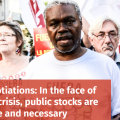
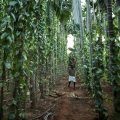 UN Food Systems Summit: The Battle Over Global Food and Agriculture Governance
UN Food Systems Summit: The Battle Over Global Food and Agriculture Governance
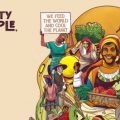 Food Sovereignty is the only solution and way forward.
Food Sovereignty is the only solution and way forward.
 Food sovereignty is Africa’s only solution to climate chaos
Food sovereignty is Africa’s only solution to climate chaos
 La Via Campesina calls on States to exit the WTO and to create a new framework based on food sovereignty
La Via Campesina calls on States to exit the WTO and to create a new framework based on food sovereignty
You may like
WITNESS RADIO MILESTONES
Top 10 agribusiness giants: corporate concentration in food & farming in 2025
Published
3 weeks agoon
June 19, 2025
Today a handful of agribusiness corporations have consolidated unprecedented control over the world’s food supply, with devastating consequences for farmers, consumers and the planet. A new report by ETC Group and GRAIN examines the state of corporate concentration in six sectors critical to agriculture: commercial seeds, pesticides, synthetic fertilisers, farm machinery, animal pharmaceuticals and livestock genetics.
Corporate consolidation is increasing in most of these sectors and four of them– seeds, pesticides, agricultural machinery and animal pharmaceuticals– now meet the definition of an oligopoly, in which four companies control more than 40% of a market. Concentration can be even higher at the national level, as is the case with synthetic fertilisers.
Top findings from the report include:
- Oligopolies dominate key sectors: Bayer, Corteva, Syngenta, and BASF control 56% of the global commercial seeds market, and 61% of the pesticides market.
- Profiteering amid global crises: Agribusiness giants have exploited crises like the Ukraine war and the COVID-19 pandemic to inflate prices. Fertiliser companies, for instance, saw revenues soar by 57% from 2020 to 2023, with some accused of price gouging.
- Digital and biotech expansion: Corporations are rapidly integrating AI, gene editing, and digital platforms into agriculture through partnerships with Big Tech companies. These technologies enable data extraction from farmers, facilitate carbon credit schemes, and tighter control over food systems—while raising concerns about biosafety, privacy, and corporate monopolies.
Source: grassrootsonline
Related posts:

 A corporate cartel fertilises food inflation
A corporate cartel fertilises food inflation
 Food inflation: The math doesn’t add up without factoring in corporate power
Food inflation: The math doesn’t add up without factoring in corporate power
 African governments are giving in to corporate pressure and undermining local seed systems – report
African governments are giving in to corporate pressure and undermining local seed systems – report
 The United Nations Food Systems Summit is a corporate food summit —not a “people’s” food summit
The United Nations Food Systems Summit is a corporate food summit —not a “people’s” food summit
WITNESS RADIO MILESTONES
Land grabbers evict 360,000 Ugandans in 2024
Published
8 months agoon
November 20, 2024
A staggering 363,021 Ugandans were displaced due to forced land evictions between January and June 2024, according to a new report by Witness Radio Uganda.
The report documented 90 cases of land evictions during this period, with nearly four incidents occurring weekly, affecting over 15,126 people and threatening 5,060 hectares of land nationwide.
The Central region was the epicenter, recording 52 eviction cases, followed by 24 in the Western region, eight in the Northern region, and six in the Eastern region. Alarmingly, the report estimated that 2,160 Ugandans face eviction daily, with 723 hectares of land at risk of being grabbed every day.
VIOLENCE AND HUMAN RIGHTS VIOLATIONS
Despite government promises and directives from President Museveni to halt evictions, land grabbers have routinely ignored these orders, often resorting to violence. Armed security forces, private militias, and police were reported to have carried out the majority of the evictions.
Of the reported cases, 37 were enforced by armed gangs on behalf of evictors, 25 involved Uganda Police, five were carried out with the participation of UPDF soldiers, and four were linked to private security companies.
“The egregious levels of impunity exhibited by land grabbers have left communities defenseless, creating an environment where their human rights are trampled without consequence,” said Jeff Wokulira Ssebaggala, country director of Witness Radio Uganda.
He called for accountability and justice, warning that the unchecked power of influential individuals and entities leaves marginalized communities vulnerable and without recourse.
DRIVERS OF EVICTIONS: INDUSTRIALIZATION AND LAND-BASED INVESTMENTS
The report identified the government’s push for industrialization and land-based investments as the primary drivers of forced evictions. Land is increasingly targeted for oil and gas extraction, mining, agribusiness and tree plantations for carbon offsets. While some of this land is already under development, other parcels remain vacant but are guarded by military personnel and private security firms.
Ssebaggala emphasized that industrialization must balance economic development with the protection of smallholder farmers’ rights to land and food security.

TRAGIC STORIES
The report highlighted harrowing cases that underscore the human toll of forced evictions. In Nakasongola, smallholder farmer Dan Ssebyala was ambushed and killed by armed men following a confrontation over disputed land. The district has become a hotspot for violent evictions involving absentee landlords and powerful investors.
Ismael Bwowe, a disabled father of 20, recounted how his land was confiscated after he demanded fair compensation. He faced intimidation, arrests and false charges from state authorities, including being accused of robbing an influential individual. Bwowe claimed that Total Energies offered legal support and representation on the condition that he accept their compensation terms.
“I refused,” he said, adding that the pressure to relinquish his land remains intense. The report underscores the urgent need for reforms to address forced evictions, ensure accountability, and protect the rights of vulnerable communities. Without meaningful intervention, Uganda risks deepening inequality and undermining the livelihoods of smallholder farmers who are essential to the country’s food security.
FAMILY JAILED AMID LAND DISPUTE
The plight of Richard Ssebagala, his wife Prossy Namande, and their relative Anania Ngabirano, residents of Kabubu-Kabongo village in Nansana Municipality, Wakiso district, highlights the human toll of Uganda’s ongoing land disputes. The family spent nine months in prison following their arrest on January 10, 2024, under controversial circumstances.
ARREST AND ALLEGATIONS
The arrests occurred at 1am, during a raid by officers from Luweero police station. Police reportedly banged on the doors and forcefully detained the family, accusing them of aggravated robbery. However, the family believes the arrest was a tactic linked to a land dispute with Benon Ntambi, a man who allegedly grabbed their land.
Before the arrests, Ntambi had reportedly destroyed crops, including tomatoes, potatoes, and bananas, on the contested land. While the family was incarcerated, a new building was constructed on their land, which is now occupied, raising further questions about the motivations behind their detention.
CALLS FOR JUSTICE
The case has drawn attention from Witness Radio Uganda, which has urged the government to take immediate action to address land grabbing and illegal evictions. The organization emphasized the need to strengthen land laws and protect vulnerable communities from abuses.
It also called for greater accountability in institutions such as the Uganda Police Force, the army and land registries, which are often accused of corruption and favoritism toward the wealthy.
“The government must prioritize justice for victims of illegal evictions and address systemic corruption that leaves the poor defenseless against land grabbers,” Witness Radio Uganda stated.
BROADER CONTEXT
This case underscores the broader issue of land conflicts in Uganda, where vulnerable families are often caught in disputes with powerful individuals or entities. Advocacy groups warn that the failure to address these issues not only erodes public trust but also perpetuates inequality and injustice.
As the government faces mounting pressure to act, the story of Ssebagala and his family serves as a stark reminder of the urgent need for reforms to protect land rights and ensure justice for those impacted by land disputes.
Source: The Observer
Related posts:

 Local land grabbers evict villagers at night; foreign investors cultivate the same lands the next day
Local land grabbers evict villagers at night; foreign investors cultivate the same lands the next day
 Uganda: Land-grab victim communities will join counterparts in commemorating the 2024 International Day of Struggle Against Industrial Plantations.
Uganda: Land-grab victim communities will join counterparts in commemorating the 2024 International Day of Struggle Against Industrial Plantations.
 Mubende Land Grab: Witnessradio.org presents another petition to Land Inquiry Commission, Wants All Titles being used to evict Natives to be Investigated
Mubende Land Grab: Witnessradio.org presents another petition to Land Inquiry Commission, Wants All Titles being used to evict Natives to be Investigated
 A Nullity? Ugandans Query Constitutional Land Amendment Bill
A Nullity? Ugandans Query Constitutional Land Amendment Bill
WITNESS RADIO MILESTONES
Uganda: Community members violently evicted by security forces, allegedly related to EACOP; incl. co. responses
Published
8 months agoon
November 18, 2024
On 10 February 2023, more than 2,500 community members were forcibly evicted from their land in Kapapi village in Hoima district in Western Uganda by security forces, receiving no compensation or resettlement.
Witness Radio, an Ugandan non-profit organisation comprised of human rights investigative journalists, lawyers, and social workers, said that many people were wounded during the eviction, women were raped, and houses were destroyed.
Witness Radio said its investigations found that this eviction occurred to clear the path for the Tilenga feeder pipeline, part of the East African Crude Oil Pipeline (EACOP). According to Witness Radio, in 2022 Kapapi community members’ land was surveyed for the Tilenga pipeline and people were informed they would be compensated for the land. Instead, they were forcibly evicted, which Witness Radio allege was backed and financed by Swacoff Intertrade Company Limited, known to TotalEnergies. They also allege that guards from private security company Magnum Security were involved. Witness Radio has also found that dozens of local farmers who were evicted have been arbitrarily arrested and face criminal charges.
The Business & Human Rights Resource Centre invited TotalEnergies, Swacoff Intertrade Company Limited, and Magnum Security to respond to the allegations. TotalEnergies responded and stated that no land eviction activities had been carried out by or on behalf of TotalEnergies EP Uganda (TEPU) and EACOP Ltd and that none of the affected people are Tilenga or EACOP Project Affected Persons. Swacoff responded and said that the company has never engaged in forceful eviction of any sort and asserts that these allegations are completely false. Their full responses and rejoinders from Witness Radio are available below. Magnum Security did not respond.
Related posts:

 Uganda: NGO claims Agilis Partners & Great Seasons violently evicted locals to pave the way for agribusiness; Agilis Partners responds
Uganda: NGO claims Agilis Partners & Great Seasons violently evicted locals to pave the way for agribusiness; Agilis Partners responds
 A son of the community defender is shot dead, another critically injured in a retaliatory attack by security guards evicting locals off their land to give way to large-scale sugarcane growing.
A son of the community defender is shot dead, another critically injured in a retaliatory attack by security guards evicting locals off their land to give way to large-scale sugarcane growing.
 Breaking: Criminal trial for seven community defenders opposed to EACOP/Tilenga project forced land eviction has been fixed.
Breaking: Criminal trial for seven community defenders opposed to EACOP/Tilenga project forced land eviction has been fixed.
 Uganda: CSOs claim Agilis Partners forcibly evicting local communities to pave way for agribusiness; company did not respond
Uganda: CSOs claim Agilis Partners forcibly evicting local communities to pave way for agribusiness; company did not respond

Activism on Trial: Despite the increasing repressive measures, Uganda’s EACOP protesters are achieving unexpected victories in the country’s justice systems.

Communities Under Siege: New Report Reveals World Bank Failures in Safeguard Compliance and Human Rights Oversight in Tanzania

A decade of displacement: How Uganda’s Oil refinery victims are dying before realizing justice as EACOP secures financial backing to further significant environmental harm.

Carbon Markets Are Not the Solution: The Failed Relaunch of Emission Trading and the Clean Development Mechanism

A decade of displacement: How Uganda’s Oil refinery victims are dying before realizing justice as EACOP secures financial backing to further significant environmental harm.

Govt launches Central Account for Busuulu to protect tenants from evictions

Activism on Trial: Despite the increasing repressive measures, Uganda’s EACOP protesters are achieving unexpected victories in the country’s justice systems.

Despite harsh repression, opposition to the EACOP pipeline in Uganda remains strong

Innovative Finance from Canada projects positive impact on local communities.
Over 5000 Indigenous Communities evicted in Kiryandongo District
Petition To Land Inquiry Commission Over Human Rights In Kiryandongo District
Invisible victims of Uganda Land Grabs
Resource Center
- LAND GRABS AT GUNPOINT REPORT IN KIRYANDONGO DISTRICT
- RESEARCH BRIEF -TOURISM POTENTIAL OF GREATER MASAKA -MARCH 2025
- The Mouila Declaration of the Informal Alliance against the Expansion of Industrial Monocultures
- FORCED LAND EVICTIONS IN UGANDA TRENDS RIGHTS OF DEFENDERS IMPACT AND CALL FOR ACTION
- 12 KEY DEMANDS FROM CSOS TO WORLD LEADERS AT THE OPENING OF COP16 IN SAUDI ARABIA
- PRESENDIANTIAL DIRECTIVE BANNING ALL LAND EVICTIONS IN UGANDA
- FROM LAND GRABBERS TO CARBON COWBOYS A NEW SCRAMBLE FOR COMMUNITY LANDS TAKES OFF
- African Faith Leaders Demand Reparations From The Gates Foundation.
Legal Framework
READ BY CATEGORY
Newsletter
Trending
-

 SPECIAL REPORTS AND PROJECTS4 days ago
SPECIAL REPORTS AND PROJECTS4 days agoActivism on Trial: Despite the increasing repressive measures, Uganda’s EACOP protesters are achieving unexpected victories in the country’s justice systems.
-

 NGO WORK1 week ago
NGO WORK1 week agoCommunities Under Siege: New Report Reveals World Bank Failures in Safeguard Compliance and Human Rights Oversight in Tanzania

